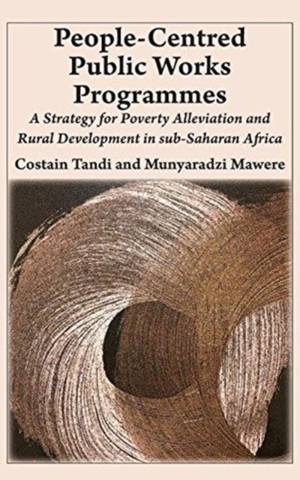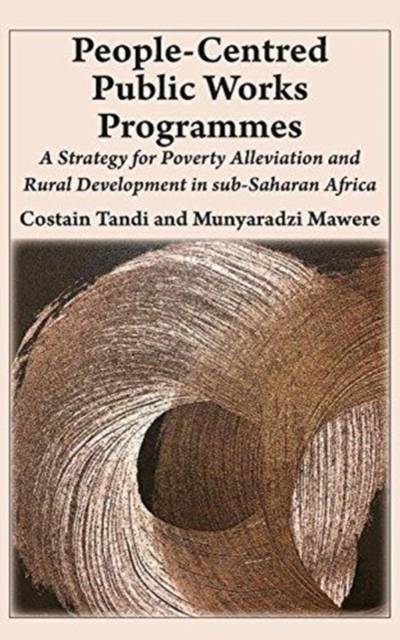
- Afhalen na 1 uur in een winkel met voorraad
- In januari gratis thuislevering in België
- Ruim aanbod met 7 miljoen producten
- Afhalen na 1 uur in een winkel met voorraad
- In januari gratis thuislevering in België
- Ruim aanbod met 7 miljoen producten
People-Centred Public Works Programmes
A Strategy for Poverty Alleviation and Rural Development in sub-Saharan Africa?
Costain Tandi, Munyaradzi MawereOmschrijving
Poverty has long been a developmental challenge in the Global South in general and in sub-Saharan Africa in particular. With a fifth, mainly from the rural areas of the world, living below the poverty datum line, the world has a huge challenge to reduce poverty, worse still to eradicate it from the face of the earth. A target was set through the 2000-2015 United Nations (UN) Millennium Development Goals (MDGs) and subsequently through the Sustainable Development Goals (SDGs), to reduce poverty by at least half by the years 2015 and 2030 respectively. In pursuing this goal, livelihoods of poor people though meeting with serious challenges, especially in rural areas, play a major role. This book explores the role played by people-centred Public Works Programmes in the fight against poverty and the development of rural communities in Africa. Whereas a number of countries in Africa have been approaching the issue of poverty through several interventions including Public Works Schemes, it is sad to note that poverty still tops the rankings among numerous economic and social challenges facing the continent. One wonders whether the public works strategy is misguided, misconstrued or mismanaged considering that its main objective is to make the unemployed more employable through the provision of temporary employment and training opportunities. The book concludes that Public Works Programmes, if well managed and people-centred, are one of the best ways to alleviate and even eradicate poverty in rural Africa, as it allows governments to make partnership with people, and facilitates implementation while giving space for economic self-sustenance, growth and development.
Specificaties
Betrokkenen
- Auteur(s):
- Uitgeverij:
Inhoud
- Aantal bladzijden:
- 158
- Taal:
- Engels
Eigenschappen
- Productcode (EAN):
- 9789956550487
- Verschijningsdatum:
- 7/06/2018
- Uitvoering:
- Paperback
- Formaat:
- Trade paperback (VS)
- Afmetingen:
- 127 mm x 203 mm
- Gewicht:
- 163 g

Alleen bij Standaard Boekhandel
Beoordelingen
We publiceren alleen reviews die voldoen aan de voorwaarden voor reviews. Bekijk onze voorwaarden voor reviews.









